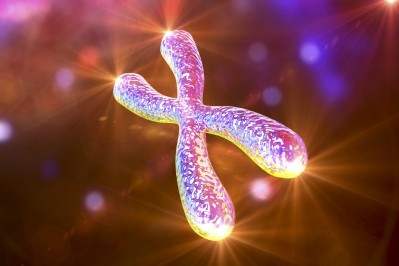Study: How early maternal dietary intakes affect biological aging in children

Maternal diet could be the most important exposure shaping childrens’ health outcomes. With this in mind, researchers at the University of Catania in Catania, Italy, examined the relationship between maternal intake of nutrients in early pregnancy and telomere length of cell-free circulating DNA (cfDNA) from amniotic fluid. Since amniotic fluid contains a greater amount of cfDNA than maternal serum, the authors point out that there is a growing interest in investigating the relationship between maternal diet and telomere length of cfDNA from amniotic fluid.
The research team used data and samples from the ongoing prospective “Mamma & Bambino” study, which recruits mother–child pairs from Catania at the first prenatal visit. Maternal nutrient intakes were assessed using a Food Frequency Questionnaire, while relative telomere length of cfDNA was assessed by real-time polymerase chain reaction.
Biological vs chronological age
In recent years, research on aging has experienced major advancements, including the discovery that the rate of aging can be controlled–at least to some extent. According to Dr. Paul Clayton, who has researched, written and presented about the process of cellular aging, one’s chronological age and biological age are not necessarily the same. Clayton, who was not involved with this research, said some people age faster than their calendar years, while others age more slowly.
Clayton, a clinical pharmacologist and pharmaco-nutritionist, broke down the complicated process of cellular aging during a NutraCast episode.
“The machinery, both intercellular and intracellular, can be modified and modulated by all kinds of environmental inputs and most of them of course are dietary. There are other lifestyle issues as well, such as levels of physical activity, smoking and/or air pollution and stress, but many of these can be modified and many can be ameliorated by using pharmanutritional tools,” explained Clayton.
“If you eat the SAD diet, the standard American diet, which causes chronic inflammation, it accelerates the aging of the immune system, which makes it more likely that you’ll develop sepsis/septicemia. That’s really interesting and very alarming, because if you look at American public health, you see that life expectancy has been falling for the last three years, so this junk food diet that we’re eating is no doubt accelerating the age of the immune system and we’re paying a heavy price for this.”
Findings
The research, published in Nature, included 174 mother–child pairs, with 35% of the mothers reporting that they take multivitamin or multimineral supplements. The intakes of iron, vitamin B1, and magnesium were positively correlated with relative telomere length. However only the magnesium intake was positively associated with relative telomere length after a linear regression model was applied, which included maternal age, smoking, pre-gestational BMI, total energy intake, and supplement use. Magnesium deficiency was negatively associated with relative telomere length after adjusting for the same covariates.
Overall, median relative telomere length was 0.73, while no differences were evident by maternal age, educational level, employment status, pre-gestational BMI, and smoking status. The accompanying figure shows correlation coefficients between relative telomere length and nutrient intakes. Most of the relationships were not significant and only the intakes of magnesium, vitamin B1 and iron were positively but weakly correlated with relative telomere length. However, only the correlation with magnesium remained significant after adjusting for multiple comparisons, the authors said.
“To our knowledge, this is the first evidence of a positive relationship between maternal nutrient intake and telomere length of cfDNA. Further efforts are needed for deeply investigating the effect of maternal dietary intakes on telomere length, in order to develop effective public health strategies,” the authors noted.
Conclusion
The authors concluded that they found a positive association between maternal intake of magnesium and telomere length of cfDNA from amniotic fluid, while results on other micronutrients (i.e., vitamin B1 and iron) were marginally significant.
“This is the first evidence of an early effect of maternal magnesium intake on biological aging of offspring. Although our approach could help to understand molecular mechanisms underpinning the transgenerational effects of maternal diet on biological aging, further research is needed to identify strategies for preventing or delaying age-related diseases as early as pregnancy.”
Source: Nature
Scientific Reports 12, 11671 (2022). doi.org/10.1038/s41598-022-15370-9
“Nutrient intakes and telomere length of cell-free circulating DNA from amniotic fluid: findings from the Mamma & Bambino cohort”
Authors: R. Magnano San Lio et al.


















